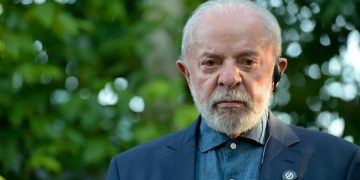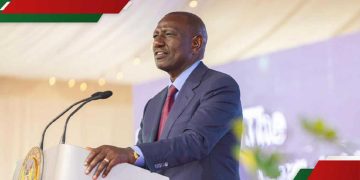President Emmerson Mnangagwa’s office says it never got any letters from Nelson Chamisa regarding the mooted national talks, and neither was it aware of emissaries that the MDC Alliance leader sent to the president.
“We are not in receipt of any letter from Chamisa at all. We are also not aware of any emissaries that he has sent to us. That’s completely untrue,” Mnangagwa’s spokesperson George Charamba said.esterday.
This comes after Chamisa said on Thursday that he had written several letters and also sent a number of emissaries to Mnangagwa on the need to hold much-needed dialogue – but to no avail thus far.
Charamba also said that in spite of the confusion over Chamisa’s letters and emissaries, Mnangagwa remained ready to engage in dialogue with the opposition and other key stakeholders – in the interest of the country.
“We have been ready from the first day after the results of the elections were announced in 2018.
“We proceeded not just to offer him (Chamisa) recognition, we also made available a platform – the political actors dialogue (Polad) – for engaging him alongside all other politicians.
“But we don’t engage Chamisa to rescue his world that is collapsing, we engage Chamisa for national good,” said Charamba.
“We have been forced into election mode from the day after the 2018 election, and this is much regrettable … Creating Polad was to de-escalate electoral politics, but Chamisa decided not to join.
“They thought that there is a magic wand in continued politicking electorally over a closed matter, without realising it could only underline their weaknesses and unreasonableness.
“The dialogue is proceeding and engagement is happening every day,” the tough-talking Charamba also said.
This comes as new opposition leader Douglas Mwonzora and Chamisa are stepping up the chase for talks with Mnangagwa and other key stakeholders, to help end the country’s decades-long political and economic crises.
It also comes as the opposition is set to hold nationwide consultations with Zimbabweans this weekend, on the mooted talks.
Charamba also said yesterday that while it was a positive thing that Chamisa now wanted dialogue with Mnangagwa, both the president and Zanu-PF were not amused by “the young man’s dishonesty towards talks“.
“What we find unacceptable is for him to try and suggest that he is a crop above the rest … that is completely unacceptable.
“It’s not a crime for a young politician to realise the folly of his initial stance and seek engagement … that’s normal in the learning curve of a political abstract.
“What would be unacceptable is for that young politician to then try and legitimise his U-turn by making false claims,” Charamba further said.
Last week, Chamisa twice publicly and directly called for both all-inclusive national talks and a joining of forces with other key stakeholders to deal with Zimbabwe’s myriad challenges.
“I have written several letters to Mnangagwa. I have sent emissaries to Mnangagwa to say come let us reason together. This problem for Zimbabwe is too big for you.
“You are incapable of solving it alone. It takes two to tango. Come let’s look at the problem together. But he doesn’t listen.
“He has refused to listen. He has refused to understand where we are coming from. You can’t say the country is normal … when student leaders are in jail, when senior MDC members are charged, when workers have had charges. That can’t be normal,” Chamisa told a meeting organised by Crisis in Zimbabwe Coalition.
“You can’t be the only one who is right and everyone is wrong. That is what has to be corrected.
“But it starts with understanding that something is fundamentally broken and that it needs to be fixed. And it can only be fixed by all of us,” he also said.
But Charamba told the Daily News On Sunday yesterday that Chamisa’s “sudden readiness to have dialogue” was a face-saving act as his influence was “dimming”.
“I don’t think he has seen the light. What he has realised is that things are falling apart. We have seen a number of interests trying to rescue him, including foreign ones, but that can’t be the basis of engaging Chamisa.
“That he may have done as a way of face-saving is to hide behind fellow religious leaders who have tried to reach the president through the president’s uncle, vaMutendi (Zion Christian Church leader Bishop Nehemiah Mutendi),” Charamba said further.
He also said the country was on a good economic trajectory, adding quickly that it was still important “for people to dialogue for the good of the country”.
However, Charamba chided the Church for reaching out to Western embassies over the country’s mooted national dialogue.
“There is no leader, let alone in Zanu-PF who declined dialogue … What is objectionable are two basic things, to distribute dialogue on a preferential basis and … to engage in dialogue which is prompted by foreign interests. These issues don’t need foreigners. We are seeing church leaders who are going to the EU and Americans.
“If they want funding to run their churches, that’s entirely a different matter which should never be confused with Zimbabwe’s quest for national dialogue, which is a national initiative and which is an expression of national sovereignty,” Charamba told the Daily News On Sunday.
This comes as Chamisa has intensified his push for talks, after the MDC Alliance said it had deployed people countrywide to consult on the scope of the planned dialogue that is meant to help end Zimbabwe’s myriad challenges.
“We are dispatching 210 teams all over Zimbabwe in every constituency. This is a serious thing … Zimbabwe needs dialogue to have reforms.
“We are engaging the people at various levels … including traditional leaders, our structures, business, trade unions and students.
“We are engaging citizens. The party will spearhead and not lead the process,” MDC Alliance deputy spokesperson, Clifford Hlatywayo, told the Daily News On Sunday’s sister paper, the Daily News last week.
“The issue of dialogue is to deal with the problems we are facing as a nation … The players are Mnangagwa, president Chamisa and the people of Zimbabwe, and these are the stakeholders who must take part in the dialogue.
“There is no need to have Polad. The Zimbabwe crisis will not be solved by talking to friends only.
“When we talk about nation-building there is a need to swallow pride. Even those who are not in good books must talk,” Hlatywayo further told the Daily News.
“All these issues are going to be discussed with the people. We are going to table them with the people. We need to take all on board, starting this weekend,” he added.
All this also comes as there is a growing consensus among Zimbabwe’s key stakeholders on the urgent need for inclusive national dialogue to help end the country’s decades-long myriad challenges.
It also comes as the Church has presented a draft talks framework to Zanu-PF, the MDC, Western powers and other stakeholders – as it pushes for Mnangagwa, Mwonzora and Chamisa to settle their political differences via the negotiating table.
Credit: Dailynews











